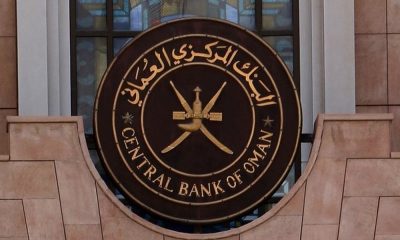Economy
CBUAE Issues New Guidance For Licensed Financial Institutions On Risks Related To Payments

The Central Bank of the UAE (CBUAE) has issued new guidance on anti-money laundering and combatting the financing of terrorism (AML/CFT) for its licensed financial institutions (LFIs) on the risks related to payments.
The guidance, which comes into effect today, will assist LFIs’ understanding of risks and effective implementation of their statutory AML/CFT obligations and takes Financial Action Task Force (FATF) standards into account.
It requires LFIs to demonstrate compliance with its requirements within one month.
The guidance focuses on the money laundering and the financing of terrorism risks relating to payments and preventive measures that LFIs should apply in order to mitigate such risks.
As new payment products and services might bring risks to the financial system because of the rapid movement of funds between payment participants and across borders, and LFIs might be exposed to participants licensed by the CBUAE and those operating globally, LFIs should take a risk-based approach to mitigate and manage money laundering and the financing of terrorism risks.
They should conduct a regular risk assessment to cover all the payment products, services, relationships and exposure to domestic and foreign payment sector participants.
LFIs are responsible for conducting due diligence on customers, monitoring all transactions processed or conducted through the LFIs and reporting suspicious transactions to the UAE’s Financial Intelligence Unit.
They should also have a sanctions compliance programme with operational systems that appropriately screen transactions and transmit required information throughout the payment cycle.
In correspondent relationships, LFIs should not process any payments for a correspondent unless they are entirely confident that the correspondent conducts appropriate screening. These preventive measures should be integrated into an LFI’s AML/CFT compliance programme and supported with governance and training.
Khalid Mohammed Balama, Governor of CBUAE, said: “We are committed to implementing high regulatory control over LFIs and their payment operations, including products, services and exposure. The new guidance ensures that all LFIs in the UAE understand their AML/CFT responsibilities and have compliance programmes to mitigate risks payment-related risks.”
-

 OER Magazines2 months ago
OER Magazines2 months agoOER, July 25
-

 Alamaliktistaad Magazines2 months ago
Alamaliktistaad Magazines2 months agoAl-Iktisaad, July 25
-

 Digital2 months ago
Digital2 months agoRussia’s Digital Frontier: An Inside Look with Alexey Goreslavsky of IRI
-

 News1 month ago
News1 month agoOpenAI Strengthens ChatGPT’s Mental Health Safeguards Ahead of GPT-5 Launch
-

 Banking & Finance2 months ago
Banking & Finance2 months agoSohar International Partners as Main Sponsor for Refill 3, a Culinary and Cultural Festival Driving Tourism in Khareef Dhofar
-

 Banking & Finance2 months ago
Banking & Finance2 months agoTender results of Government Treasury Bills worth RO21.7 million issued
-

 Energy2 months ago
Energy2 months agoSOHAR Port and Freezone Signs MoU to Develop Natural Hydrogen Value Chain in Oman
-

 Economy1 month ago
Economy1 month agoNajla Zuhair Al Jamali Appointed President of bp Oman































